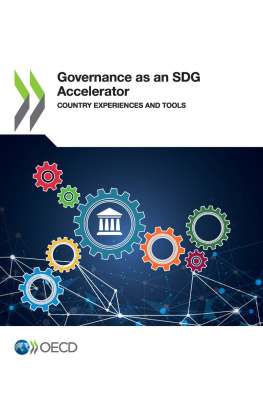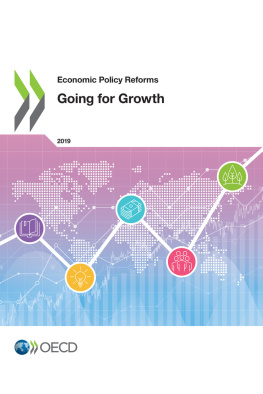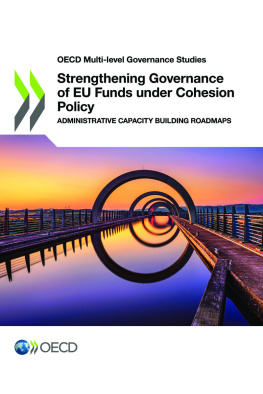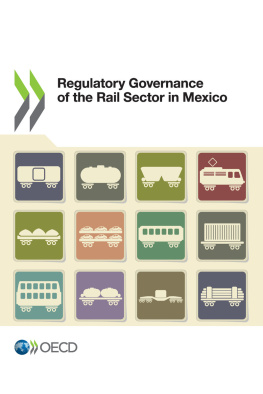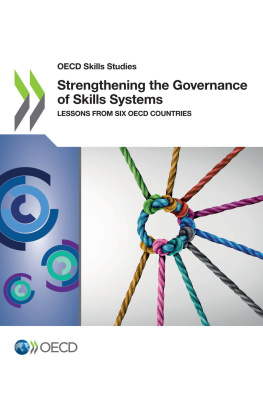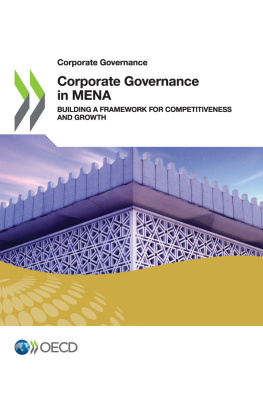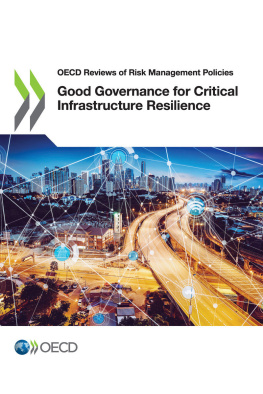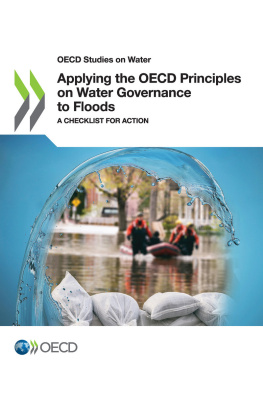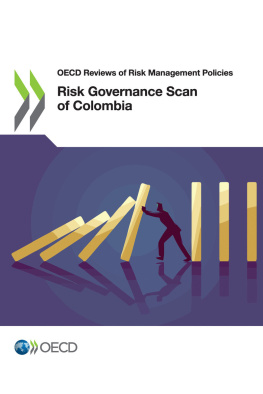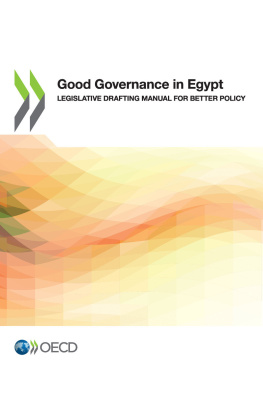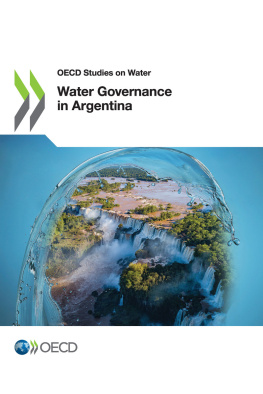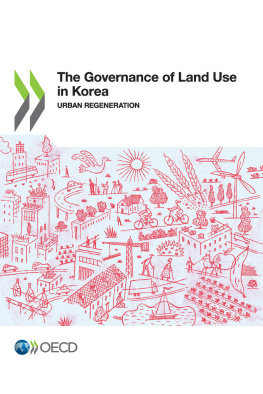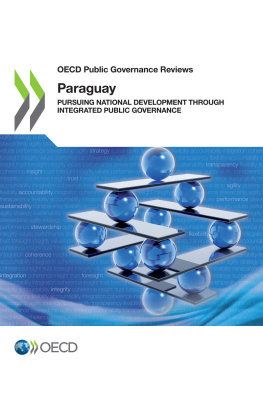OECD - Governance as an SDG Accelerator
Here you can read online OECD - Governance as an SDG Accelerator full text of the book (entire story) in english for free. Download pdf and epub, get meaning, cover and reviews about this ebook. year: 2019, publisher: OECD Publishing, genre: Politics. Description of the work, (preface) as well as reviews are available. Best literature library LitArk.com created for fans of good reading and offers a wide selection of genres:
Romance novel
Science fiction
Adventure
Detective
Science
History
Home and family
Prose
Art
Politics
Computer
Non-fiction
Religion
Business
Children
Humor
Choose a favorite category and find really read worthwhile books. Enjoy immersion in the world of imagination, feel the emotions of the characters or learn something new for yourself, make an fascinating discovery.
Governance as an SDG Accelerator: summary, description and annotation
We offer to read an annotation, description, summary or preface (depends on what the author of the book "Governance as an SDG Accelerator" wrote himself). If you haven't found the necessary information about the book — write in the comments, we will try to find it.
OECD: author's other books
Who wrote Governance as an SDG Accelerator? Find out the surname, the name of the author of the book and a list of all author's works by series.
Governance as an SDG Accelerator — read online for free the complete book (whole text) full work
Below is the text of the book, divided by pages. System saving the place of the last page read, allows you to conveniently read the book "Governance as an SDG Accelerator" online for free, without having to search again every time where you left off. Put a bookmark, and you can go to the page where you finished reading at any time.
Font size:
Interval:
Bookmark:
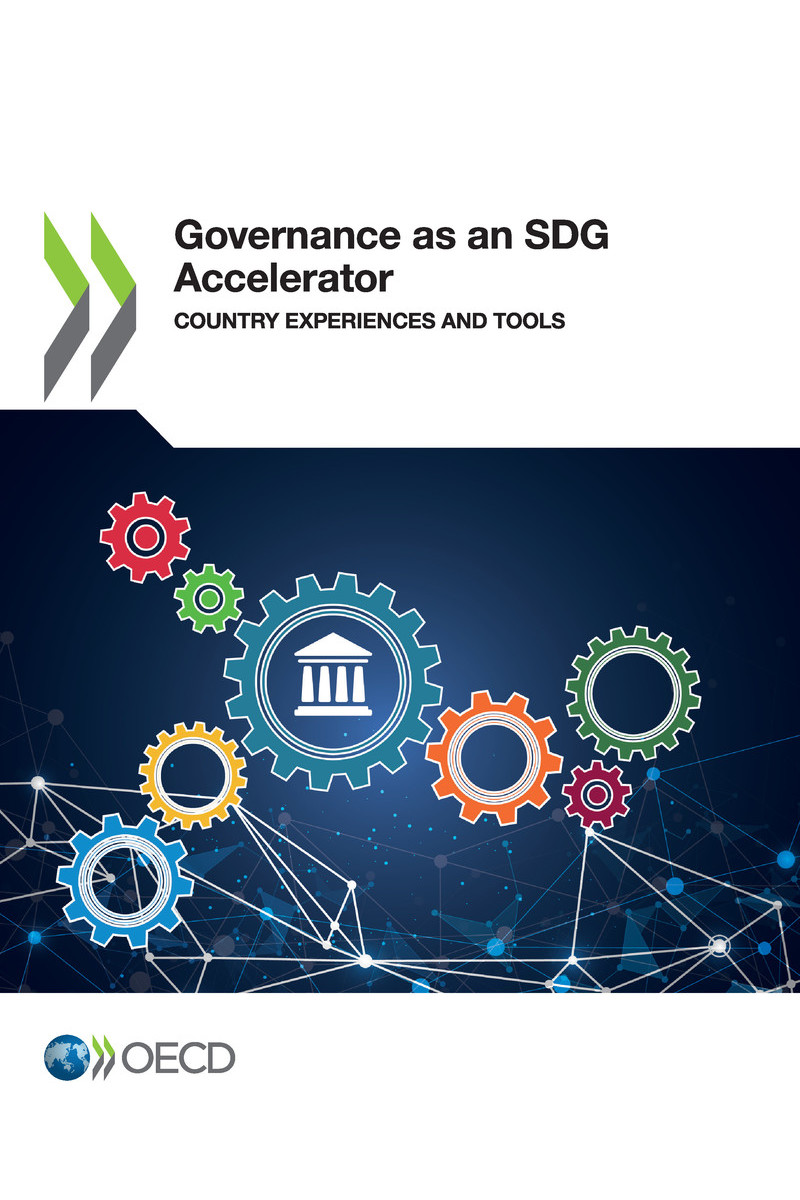
OECD (2019), Governance as an SDG Accelerator : Country Experiences and Tools , OECD Publishing, Paris, https://doi.org/10.1787/0666b085-en .
The Sustainable Development Goals set a roadmap for a better world. One where poverty, hunger, disease, climate change and gender inequality are no longer a threat to our planet and wellbeing. Instead, they chart a world where decent jobs for all, sustainable infrastructure, clean oceans and energy, responsible consumption and production, clean water and sanitation, and quality education, become the norm.
If we are serious about achieving these ambitious goals in just over ten years, we must accelerate progress. For that to happen, we need to mobilise financial resources, but we also need to boost the capacity of governments to plan, to coordinate, to act, and to serve as a catalyst in support of SDG implementation.
Governments face a particularly challenging task with the SDGs. The SDGs are complex and multi-faceted. Governments need to be able to manage trade-offs to understand externalities and to align and coordinate action across several ministries and levels of government.
This report highlights some good practices and other innovative steps countries around the world are taking towards whole-of-government coordination, stakeholder participation, integrating the SDGs into the budget cycle, building monitoring and evaluation systems, and strengthening integrity systems.
The OECD is committed to helping countries deliver on the SDGs. In partnership with the UN system and other stakeholders, the OECD is also ready to work with all countries and support them as they review and refine their institutional frameworks and policy toolboxes in support of SDG implementation.

Marcos Bonturi
Director
OECD Public Governance Directorate
This publication was prepared under the guidance of Marcos Bonturi, Director, Irne Hors, Deputy Director, and Sara Fyson, Counsellor and Head of the Policy Coherence for Sustainable Development Unit, in the Public Governance Directorate. Sigita Strumskyte, Counsellor in the Environment Directorate, managed and contributed to the preparation of the first draft of the report.
Carina Lindberg, Policy Analyst, coordinated and reviewed all content, which was provided by a number of colleagues: Miriam Allam, Julio Bacio Terracino, Alessandro Bellantoni, Janos Bertok, Pauline Bertrand, Eva Beuselinck, Andrew Blazey, Matthieu Cahen, Marco Daglio, Andrew Davies, Lena Diesing, Fleur Dsouza, Pinar Guven, Gamze Igrioglu, Stphane Jacobzone, Juliane Jansen, Kenza Khachani, Chlo Lelievere, Paulo Magina, Craig Matasick, Michael Morantz, Scherie Nicol, Adam Ostry, Jack Radisch, Toni Rumpf, Rebecca Schultz, Ernesto Soria Morales, Ivan Stola, Tatyana Teplova and Yola Thuerer.
We are grateful to Edward Hainsworth for proof-reading all chapters, to Christelle Cordova and Ricardo Sanchez Torres for providing valuable administrative and communications support, and to Meral Gedik and Eleonore Morena for preparing the report for publication. Finally, we wish to express our thanks to delegates of the Public Governance Committee who provided helpful feedback on earlier drafts.
Achieving progress on the SDGs will require governments to work across policy areas. This is no easy task. The obstacles to joined-up government are well known. For example, immediate economic and social pressures often crowd out longer term strategic policy initiatives. Public budgets and accountability systems are usually aligned with departmental structures and have difficulty tracking outcomes that occur in multiple policy areas and across multiple levels of government. An unprecedented range of public and private actors will need to be consulted and participate in both policy formulation and implementation of the SDGs.
Font size:
Interval:
Bookmark:
Similar books «Governance as an SDG Accelerator»
Look at similar books to Governance as an SDG Accelerator. We have selected literature similar in name and meaning in the hope of providing readers with more options to find new, interesting, not yet read works.
Discussion, reviews of the book Governance as an SDG Accelerator and just readers' own opinions. Leave your comments, write what you think about the work, its meaning or the main characters. Specify what exactly you liked and what you didn't like, and why you think so.

